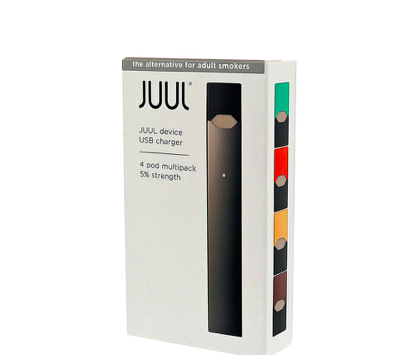A San Francisco Superior Court judge has rejected Juul’s attempt to remove language from November’s ballot saying Proposition C “may” overturn the City’s ban on flavored e-cigs.
In a court hearing Friday morning, Judge Harold Kahn said there was legal uncertainty about what the effect of the proposition may be if it passes and therefore the “may” language suggested by the City Attorney’s Office to the Ballot Simplification Committee is appropriate.

“This is an issue of the proponents own making,” Kahn said, adding that Juul could have included language in their initiative making their intentions clearer. “But they didn’t, and now we have a lack of clarity.”
“Lack of clarity is best described as ‘may,’” he said.
James Sutton, an attorney representing Juul, asked for an additional sentence to be included in the ballot digest saying proponents of Prop. C don’t believe it will overturn the flavor ban, but Kahn denied the request.
“What you’re basically asking (for) is Proposition C’s proponents want their best argument put on the ballot digest,” he said. “That doesn’t seem right to me, just like it doesn’t seem right to me that the opponents would want their best arguments put in the ballot digest.”
Kahn did approve a request from Juul to change language describing the supe’s ban of e-cigs as outlawing “the sale of electronic cigarettes that lack required FDA authorization.” Juul argued that particular phrasing falsely implied that the FDA requires e-cigs sold on the market today to have already undergone authorization.
After some back and forth about the wording, Kahn agreed to change that language to “until they receive FDA authorization.”
Help us save local journalism!
Every tax-deductible donation helps us grow to cover the issues that mean the most to our community. Become a 48 Hills Hero and support the only daily progressive news source in the Bay Area.
“I recognize it’s not the smartest thing to do, to come up with the ballot question (language) off the top of my head – but you’ve given me no choice,” Kahn said from the bench. “I understand the ballot question is going to the printers this afternoon.”
“I think overall it’s a win for our side,” Louise Renne, a former city attorney and opponent of Prop. C, said outside the courtroom. “Those of us who are No on C believe that should C win, they would turn around the next day and try to get rid of the flavor ban.”
Sutton said he was pleased with the ballot digest changes about FDA authorization, but insisted Juul had no intention of overturning the flavor ban.
“The city attorney wrote the official summary of the measure in May, and didn’t call out his argument about the flavor ban. If he had, we would have stopped the presses – we would have added something about the flavor ban in there, and we would have started again.” Sutton said. “He didn’t do it until the campaign started, and they did polling, and he figured out the flavor ban was such a good argument against it. That’s the bullshit here.”
Aileen McGarth, an attorney with the City Attorney’s Office who argued the case, rejected those assertions.
“The flavor ban has been on the books for a year, and was the subject of a hotly-contested, well-publicized referendum,” she said. “The initiative proponents are well aware of it. I don’t see any way that they can say they didn’t know they might have had to put preservation language about the flavor ban in the initiative given that state of affairs.”
Juul has spent $4.6 million on the Yes on Prop. C campaign to date, according to campaign filings.
Now that a ruling has been made, the ballot can finally be sent off to be printed by the city’s vendor, K&H Printers in Everett, Washington.
But John Arntz, director of the Department of Elections, said making changes to the ballot this close to an election isn’t as simple as just editing a document in a word processor and clicking “send.” The changes ordered by the judge first need to be translated into the other languages that appear on the ballot – Spanish, Chinese, and Filipino – then typeset and proofed again.
“We’ve already waited a week to get the ballots to the printer. We’re waiting for [the written ruling] so we can get on it,” Arntz said Friday afternoon.



